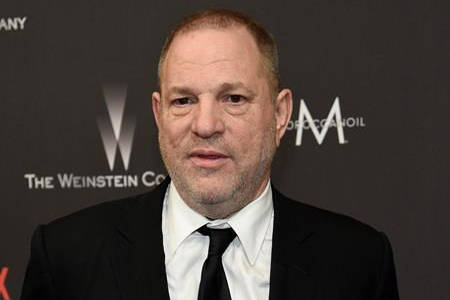Disgraced film mogul Harvey Weinstein sued his former company on Thursday, seeking access to emails, his personnel file and other records he contends may exonerate him from multiple allegations of sexual harassment and assault.
Weinstein’s lawsuit filed Thursday in Delaware seeks access to the records, which Weinstein’s lawyers argue are key to the Oscar-winner’s defence from the avalanche of harassment claims made against him since an Oct. 5 report by The New York Times. Weinstein was fired from The Weinstein Co. three days later. His lawsuit makes clear that if he is able to obtain the records, he may use them to pursue a wrongful termination case or other legal actions against the company.
READ: Hollywood reacts to Weinstein harassment claims
The lawsuit notes the numerous legal troubles facing Weinstein and his former company, including criminal investigations, a civil lawsuit that alleges The Weinstein Co. knew of decades of harassment allegations lodged against the producer and a civil rights investigation launched by the New York attorney general.
“Mr. Weinstein believes that his email account — which is the primary, if not only, account he used during the term of his employment by the company — will contain information exonerating him, and therefore the company, from claims that may be asserted against him or the company. Further, Mr. Weinstein is in a unique position to offer insight, and further explain and contextualize his emails.”
Weinstein is asking a judge to expedite a ruling on his case.
A representative for The Weinstein Co. did not immediately respond to an email message seeking comment.
The lawsuit came hours after actress Ashley Judd described on-camera Weinstein’s sexual advances toward her, which she said she escaped by making a deal.
She was a rising young actress two decades ago who had arrived at the hotel suite of this powerful film mogul for what she thought would be a business meeting.
READ: #MeToo: Women tell stories of sexual assault and harassment on social media
It wasn’t, she said in her first on-camera recounting of the incident, which aired Thursday on “Good Morning America.” Judd’s account of the incident three weeks ago in The New York Times was a key factor in Weinstein’s downfall, and opened the door to an avalanche of harassment allegations against Weinstein and others and a broader cultural discussion of how women are treated in the workplace and beyond.
Writer and director James Toback, an Oscar-nominee for his “Bugsy” screenplay, has been accused of sexual harassment and assault by more than 200 women since a Los Angeles Times article broke the stories of 38 women Sunday. On Thursday, actresses Selma Blair and Rachel McAdams told Vanity Fair about encounters with Toback early in their careers. Blair alleges that Toback humped her leg and implied that he would have her killed if she told anyone.
NBC suspended Mark Halperin on Thursday after CNN reported on the claims of five women who said the political journalist harassed them while he was an ABC News executive. Halperin, who co-authored the bestseller “Game Change,” apologized Wednesday for what he called inappropriate behaviour. And former Fox News host and bestselling author Bill O’Reilly, who was forced out of the network in April after sexual harassment allegations, saw his literary agency cut ties with him.
READ: Canadian writers, actors join Twitter boycott
Fallout continues to Weinstein and the film production company he co-founded. The Lexus luxury vehicle brand said Thursday it was ending its partnership with The Weinstein Co., which included sponsorship and product placement in company’s “Project Runway” television show.
Weinstein has been fired from the company he co-founded with his brother and is now facing criminal investigations in London, New York and Los Angeles.
ABC is spreading its interview with Judd throughout its programming Thursday, with segments expected to air during its nightly newscast and its “Nightline” late-night show.
In the “GMA” interview, Judd said the business meeting in Weinstein’s hotel room turned into a negotiation not about work, but about things the producer wanted the actress to do to him.
Weinstein first offered to give her a massage, then, when she demurred, asked her to give him one, she said.
“I fought with this volley of no’s,” she said.
Then she made a “deal.” She said she agreed to submit to him, but only “when I win an Oscar in one of your movies — OK?”
“When you get NOMINATED,” Weinstein counter-offered.
“And I said, ‘No. When I WIN an Oscar.’ And then I just fled.”
Judd said she remains of two minds about how she handled the shocking situation.
“Am I proud of that? . The part that shames myself says, ‘No.’ The part of me that understands the way shame works says, ‘That was absolutely brilliant. Good job, kid, you got out of there. Well done!’”
Judd said a couple of years after the hotel encounter she was seated across from Weinstein at a dinner. She said he brought up “that little agreement we made,” and claimed he was “looking around for the material.”
Then he looked at her and said, “You know, Ashley, I’m going to let you out of that little agreement that we made.”
Judd said by then “I had come into my own, I had come into my power, I had found my voice. And I said, ‘You do that, Harvey. You DO that.’
“And he has spat my name at me ever since.”



